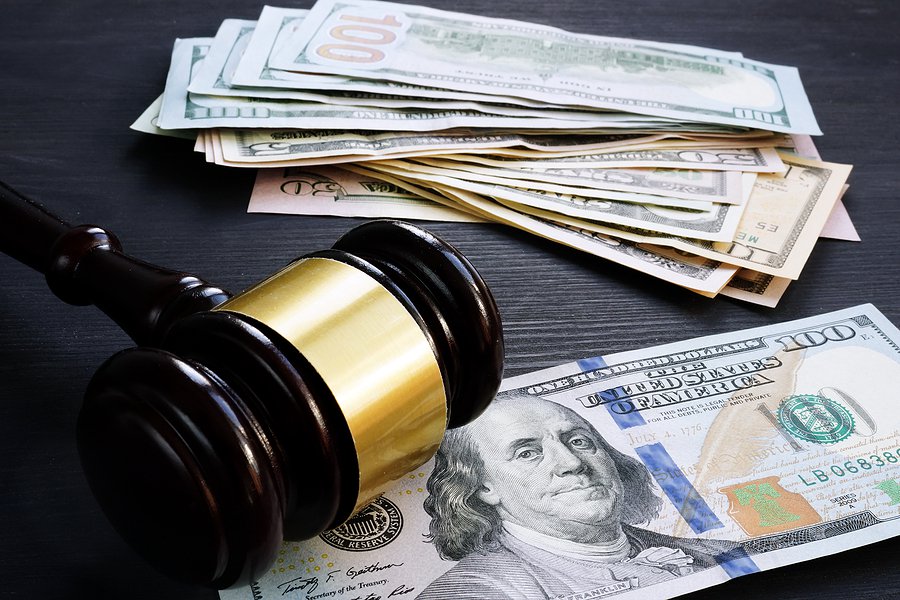Comprehending the Process of Securing a Bail Bond: What You Need to Know
Securing a bail bond can be a complicated procedure. It entails recognizing numerous facets, from the sorts of bonds offered to the connected expenses. Individuals usually forget vital information that can affect their circumstance. The steps to obtain a bail bond require mindful factor to consider and expertise of duties. As the procedure unfolds, vital decisions must be made that could influence the end result greatly. What should one anticipate when traversing this challenging landscape?
What Is a Bail Bond?
A bail bond is an economic agreement that allows an apprehended individual to be released from safekeeping while awaiting trial. This arrangement includes a 3rd celebration, normally a Bail bondsman, that assures the court that the individual will certainly return for their set up court appearances. For this solution, the bondsman normally charges a non-refundable cost, commonly a portion of the total Bail quantity.
Bail bonds offer an essential function in the lawful system, offering a device for accuseds to keep their flexibility throughout the pre-trial phase. This can aid them get ready for their protection better. The Bail quantity is determined by the court based upon different variables, including the extent of the violation, the defendant's criminal background, and the risk of trip. Ultimately, a bail bond stands for a commitment to promote legal responsibilities while permitting individuals the possibility to continue their day-to-days live until their court day.
Exactly How Bail Bonds Work
Bail bonds operate with an uncomplicated procedure that involves numerous crucial steps. A defendant or their depictive get in touches with a bail bond agent after an arrest. The agent analyzes the situation, including the Bail quantity set by the court and the offender's background. Once a decision is made, the agent generally needs a non-refundable cost, usually a percentage of the overall Bail quantity, often varying from 10% to 15%.
After the cost is paid, the representative safeguards the Bail by signing a contract with the court, ensuring that the accused shows up for all set up court days. If the accused falls short to show up, the bail bond representative is accountable for the complete Bail quantity, leading the agent to seek out the accused. Throughout this process, the bail bond agent plays a crucial duty in facilitating the release of the defendant while handling the linked financial dangers.
Sorts Of Bail Bonds
Comprehending the numerous types of Bail bonds is very important for defendants and their family members as they navigate the legal system. There are several common types of Bail bonds available, each offering a specific purpose.
The most widespread is the guaranty bond, which entails a Bail bondsman assuring the complete Bail quantity for a fee. One more kind is the money bond, where the defendant or their family members pays the full Bail amount in money straight to the court.
Residential or commercial property bonds enable individuals to make use of realty as collateral for the Bail quantity. In addition, government bonds specify to federal situations, often requiring a higher costs and extra rigorous conditions.
Migration bonds are utilized in cases worrying migration violations. Each sort of bond has unique procedures and effects, making it crucial for those involved to comprehend their options completely.
The Costs Included in Protecting a Bail Bond
Protecting a bail bond requires various expenses that can greatly affect an offender's finances. The major expense is the premium, commonly ranging from 10% to 15% of the overall Bail amount established by the court. This premium is non-refundable, no matter the situation end result, representing the bail bond representative's fee for their solutions. Added expenses may consist of management costs, which some representatives enforce for handling documentation, and security requirements, where the accused might need to offer possessions to safeguard the bond. In cases involving higher Bail amounts, the demand for security becomes a lot more noticable. bail bonds. Furthermore, offenders ought to know potential prices associated with missed out on court days, which can cause further punitive damages. Recognizing these costs is necessary for offenders and their families, as they can significantly affect the economic burden associated with protecting a bail bond
The Process of Obtaining a Bail Bond
The procedure of acquiring a bail bond involves a series of organized actions that begin with the submission of an application. Candidates need to likewise consider numerous repayment and collateral alternatives that might be required by the bail bond firm. Recognizing these parts is necessary for navigating through the bail bond system effectively.
Application Entry Tips
Maneuvering the application entry steps for getting a bail bond can be uncomplicated when individuals are educated. The first step entails choosing a credible bail bond business, which often calls for research and referrals. When a firm is selected, the candidate needs to complete a bail bond application, giving necessary information such as the offender's information, charges, and Bail quantity. Next, the candidate might need to present identification and any kind of pertinent paperwork to support the application. After submitting the application, the bail bond business will certainly review the details and examine the threat entailed. A representative will certainly outline the terms and conditions prior to wrapping up the agreement if approved. This process, while organized, can vary somewhat depending upon the Bail and the territory bond company.

Payment and Collateral Choices
When acquiring a bail bond, recognizing payment and collateral choices is crucial, as these factors can considerably influence the overall expense and regards to the arrangement. Generally, bail bond firms require a non-refundable fee, normally a percent of the overall Bail quantity, visit their website which acts as their revenue. Some firms may supply versatile layaway plan, enabling customers to pay in installments. Furthermore, collateral can be essential to safeguard the bond, which may consist of possessions like residential property, cars, or various other belongings. The type and value of collateral can affect the bond's approval and terms. Clients ought to very carefully review their economic scenario and alternatives to assure they pick a remedy that aligns with their spending plan and circumstances.
Responsibilities of the Indemnitor
Guiding via the intricacies of Bail bonds requires a clear understanding of the obligations of the indemnitor. The indemnitor, usually a relative or buddy of the defendant, plays a substantial duty in the Bail process. This individual concurs to presume financial responsibility, making certain that the Bail amount is paid if the defendant falls short to show up in court. It is essential for the indemnitor to maintain interaction with the bail bond agent throughout the process, providing any kind of needed info and updates concerning the offender's scenario.
In addition, the indemnitor should safeguard collateral, which might consist of building or belongings, to back the bail bond. This security secures the bail bond company versus potential losses - bail bonds. Must the defendant stop working to comply with court requireds, the indemnitor faces the danger of losing their security and may be held liable for the entire Bail amount. As a result, recognizing these duties is vital for the indemnitor's economic stability

Common Misconceptions Concerning Bail Bonds
Lots of individuals harbor misconceptions about Bail bonds, which can complicate their understanding of the Bail process. One prevalent myth is that Bail bonds are a form of payment that guarantees an offender's release. In truth, they are an assurance to the court that the accused will stand for their scheduled hearings. One more usual idea is that only well-off people can afford Bail. Bail bondsmen commonly charge a portion of the total Bail quantity, making it available to a broader array of individuals. In addition, some individuals assume that Bail is refundable. While the premium paid to the Bail bondsman is not refundable, the Bail amount itself may be returned upon the conclusion of the instance, provided the offender fulfills all court requirements. Eliminating these misconceptions is important for people going across the complexities of the Bail system and click now guaranteeing they make informed choices.
Often Asked Inquiries
Can I Safeguard a Bail Bond for A Person in One More State?
Protecting a bail bond for somebody in one more state is possible, but it usually needs dealing with a Bail bondsman licensed in that state - bail bonds. Each territory has details laws that have to be adhered to throughout this process
What Happens if the Defendant Skips Bail?
If a defendant skips Bail, a warrant is typically issued for their apprehension. The Bail bondsman may also seek recuperation initiatives, which could include hiring bounty hunters to locate and nail the person.
Are Bail Bondsmen Managed by the Government?
Bondsman are indeed managed by federal government authorities. Laws vary by state, but they typically call for licensing, adherence to monetary practices, and conformity with legislations to guarantee reasonable therapy of defendants and their family members.
Can I Utilize Collateral Apart From Money?
Collateral aside from cash money can usually be made use of for Bail bonds, relying on the Bail bondsman's policies. Usual options include building, cars, or Full Article various other important properties, which should typically be assessed and concurred upon.
What Is the Role of a Co-Signer in a Bail Bond?
The function of a co-signer in a bail bond is to assure repayment if the offender fails to appear in court. This private accepts financial obligation, ensuring that the bail bond contract is promoted and enforceable.
If the defendant fails to appear, the bail bond representative is liable for the full Bail amount, leading the representative to look for out the offender. Once a company is selected, the candidate has to finish a bail bond application, providing vital details such as the offender's details, fees, and Bail quantity. Commonly, bail bond companies need a non-refundable charge, generally a portion of the complete Bail quantity, which serves as their revenue. Several individuals harbor mistaken beliefs concerning Bail bonds, which can complicate their understanding of the Bail process. Security various other than cash can commonly be used for Bail bonds, depending on the Bail bondsman's plans.